Cerro Porteño
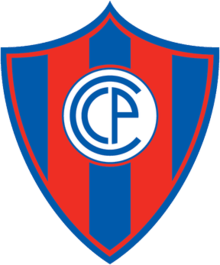 | |||
| Nickname(s) |
El Ciclón (The Cyclone) Club del Pueblo (The People's Team) La Mitad más Uno (The Half plus One) | ||
|---|---|---|---|
| Founded | October 1, 1912 | ||
| Ground |
General Pablo Rojas Stadium (La Olla), Asunción, Paraguay | ||
| Capacity | 25 | ||
| Chairman |
| ||
| Manager |
| ||
| League | Paraguayan Primera División | ||
| 2nd in the last season (Torneo Clausura 2015) | |||
|
| |||
Club Cerro Porteño is a professional Paraguayan football club, based in the neighbourhood of Barrio Obrero in Asunción. Founded in 1912, Cerro has won 31 Primera División titles and is one of the most popular football clubs in Paraguay. Its actual president is Juan José Zapag, from Paraguay, and the DT is Gustavo Morínigo.[1] Its main rivals are Olimpia and Libertad.
They play their home games at the General Pablo Rojas Stadium, also known as La Olla (The Boiler).
History

Cerro Porteño was founded on October 1, 1912 by Susana Núñez and a group of young people looking to create a new football club. At the time of Cerro's foundation the situation in Paraguay was tense with instability in the government caused by the fervent rivalries between the two leading political parties, the Partido Colorado (Colorado Party) and the Partido Liberal (Liberal Party). Because of the tensions, the founders of the club decided to use the colours of both parties, red (Colorados) and blue (Liberales), as the club's colours as a symbol of unity and friendship between Paraguayans. Later, white was used on the shorts to complete the colours of the Paraguayan flag.
The club owes its name to the battle fought between the forces of Buenos Aires, Argentina (The Porteños) and the Paraguayan army, in the neighbourhood of the Cerro Mbaé (Mbaé Hill) – named after that battle as the Cerro Porteño (Porteño Hill) – on 19 January 1811. During that battle, the troops of Paraguay (at that time a Spanish colony) were abandoned by the Spanish governor but continued to be led by the Paraguayan officials, who led them to a great victory against the Porteños troops. That battle is known as the "Battle of Cerro Porteño" and is a highlight of Paraguayan military history.
Cerro Porteño is known in Paraguay as el club del pueblo (the common people's team) because most of the fans are from lower social classes, as opposed to the fans from rival club Olimpia and Libertad whose fans are usually from the upper classes. Because of this, it is said that Cerro Porteño has the biggest number of supporters in Paraguay.
Over the years the club has won a significant number of national championships. However, to date, it has not won any international tournaments despite a few good runs in the Copa Libertadores including semi-final appearances in 1973, 1978, 1993, 1998, 1999 and 2011.
Osvaldo Ardiles joined the club as manager in May 2008 [2] but was sacked in August of the same year after a string of poor results and was replaced by Pedro Troglio.[3]
Stadium
The Stadium of Cerro Porteño, originally called Gral. Pablo Rojas and also called "La Olla", is located at "Barrio Obrero" (Avenida Acuña de Figueroa 823). The stadium is currently under maintenance, but it is intended to have a capacity of 37,000 persons, the biggest stadium in Paraguay.
International record
- Copa Libertadores: 38 appearances
- Copa Sudamericana: 9 appearances
- Semi-finals (1): 2009
Honours
- Primera División (31): 1913, 1915, 1918, 1919, 1935, 1939, 1940, 1941, 1944, 1950, 1954, 1961, 1963, 1966, 1970, 1972, 1973, 1974, 1977, 1987, 1990, 1992, 1994, 1996, 2001, 2004, 2005, 2009 Apertura, 2012 Apertura, 2013 Clausura, 2015 Apertura
- Torneo República (3): 1989, 1991, 1995
Ranking
World Club Ranking
- As of 09 March 2016.[4]
| Rank | Country | Team |
|---|---|---|
| 169 | | Cerro Porteño |
| 170 | | Partizan Beograd |
| 171 | | LDU Quito |
Players
First team
Note: Flags indicate national team as defined under FIFA eligibility rules. Players may hold more than one non-FIFA nationality.
|
|
Notable players
- To appear in this section a player must have either:
- Played at least 125 games for the club.
- Set a club record or won an individual award while at the club.
- Been part of a national team squad at any time.
- Played in the first division of any other football association (outside of Paraguay).
- Played in a continental and/or intercontinental competition.
Non-CONMEBOL players
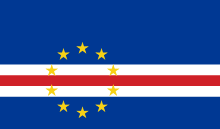
 Adriano Custódio Mendes (1988)[5]
Adriano Custódio Mendes (1988)[5] Jerry Laterza (1994–95)
Jerry Laterza (1994–95) William Inganga (1996)[6]
William Inganga (1996)[6]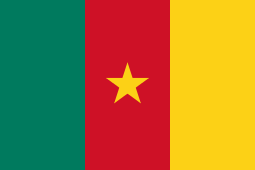 Tobie Mimboe (1996)
Tobie Mimboe (1996) Geremi Njitap (1997)
Geremi Njitap (1997) Cyrille Florent Bella (1998)
Cyrille Florent Bella (1998) Kenneth Nkweta Nju (2000–01)[7]
Kenneth Nkweta Nju (2000–01)[7] Nozomi Hiroyama (2001)
Nozomi Hiroyama (2001)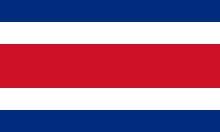 Froylán Ledezma (2001–02)
Froylán Ledezma (2001–02) Diego Madrigal (2011)
Diego Madrigal (2011) Daniel Güiza (2013–15)
Daniel Güiza (2013–15)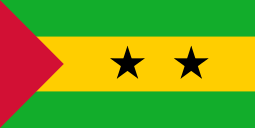 Luís Leal (2016–)
Luís Leal (2016–)
Managerial information
| Cerro Porteño coaching history from 1960 to present | ||
|---|---|---|
|
|
|
Records
Most appearances for the club (in all competitions):
- Julio Dos Santos: 267
- Jorge Achucarro: 257
- Aldo Bobadilla: 265
- Estanislao Struway: 227
Most goals for the club (in all competitions):
- Virgilio Ferreira: 90
- Erwin Ávalos: 70
- Saturnino Arrua: 88
- José Vinsac: 58
Most appearances for the club (in league):
- Salvador Breglia: 225
- Jorge Achucarro: 215
- Julio Dos Santos: 212
- Blas Marcelo Cristaldo: 201
Most goals for the club (in league):
- Virgilio Ferreira: 67
- Erwin Ávalos: 64
- José Vinsac: 58
- Saturnino Arrua: 55
Most appearances for the club (in international cup):
- Aldo Bobadilla: 67
- Estanislao Struway: 64
- Virgilio Ferreira: 61
- Blas Marcelo Cristaldo: 57
Most goals for the club (in international cup):
- Virgilio Ferreira: 23
- Santiago Salcedo: 15
- Celino Mora: 14
- César Ramírez: 13
Women
The women's team has won the Paraguayan women's football championship four times, in 2007 and 2012 to 2014.[8] The team then played in the Copa Libertadores Femenina.
References
- ↑ (Spanish) http://www.abc.com.py/nota/mayoria-piensa-que-cerro-porteno-es-el-club-mas-polular/| Most people believe that is the most popular
- ↑ http://www.geofutbol.com/2008/04/29/osvaldo-ardiles-dirigira-a-cerro-porteno/| Osvaldo Ardiles will lead to Cerro Porteño
- ↑ http://www.sportsya.com/futbol/paraguay/torneo_clausura_2008/home/noticia.php/Pedro_Troglio_reemplazara_en_Cerro_Porteno_al_despedido_Osvaldo_Ardiles.html?id_estruc=396&id=184925| Archived October 10, 2008, at the Wayback Machine. Troglio replaces Ardiles
- ↑ "Football Database".
- ↑ http://www.worldfootball.net/player_summary/custodio-mendes/
- ↑ http://www.nation.co.ke/sports/football/William-Inganga-AFC-Leopards-James-Nandwa-KPL/-/1102/2309384/-/yfq1g0z/-/index.html
- ↑ http://www.worldfootball.net/player_summary/kenneth-nju/
- ↑ "Cerro Porteño tricampeón de fútbol femenino de Paraguay" (in Spanish). conmebol.com. 22 December 2014. Retrieved 15 January 2015.
http://cerro.com.py/ http://www.clubcerro.com/ http://www.futbolya.com/equipos/paraguay/cerro-porteno-football-club http://footballdatabase.com/clubs-ranking/cerro-porteno
External links
| Wikimedia Commons has media related to Cerro Porteño. |